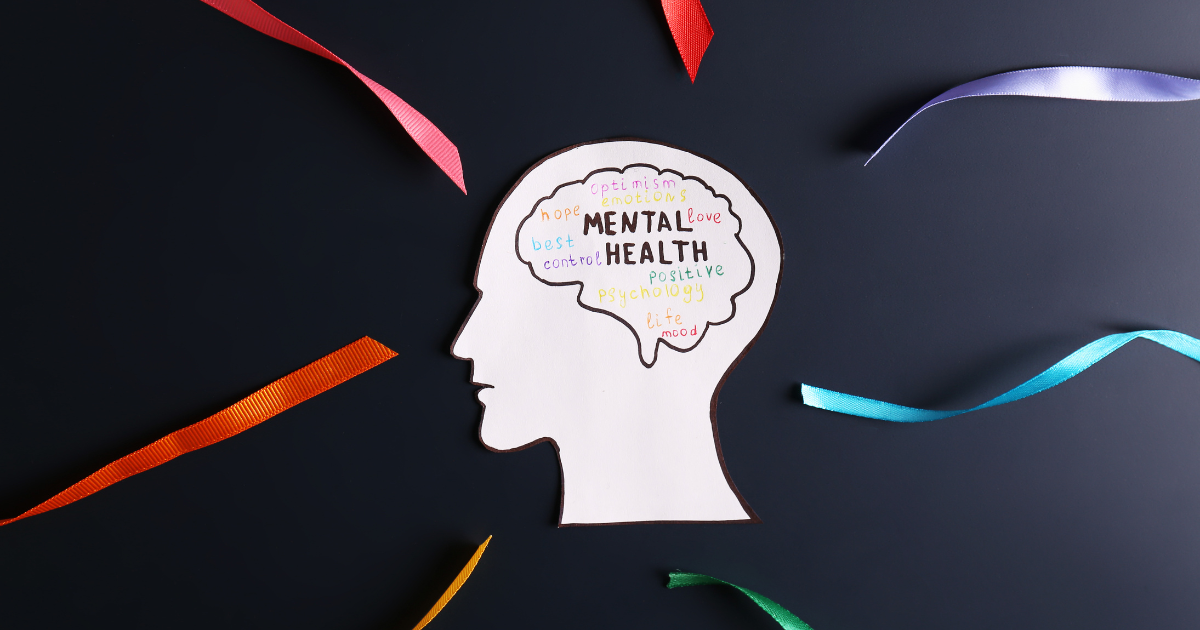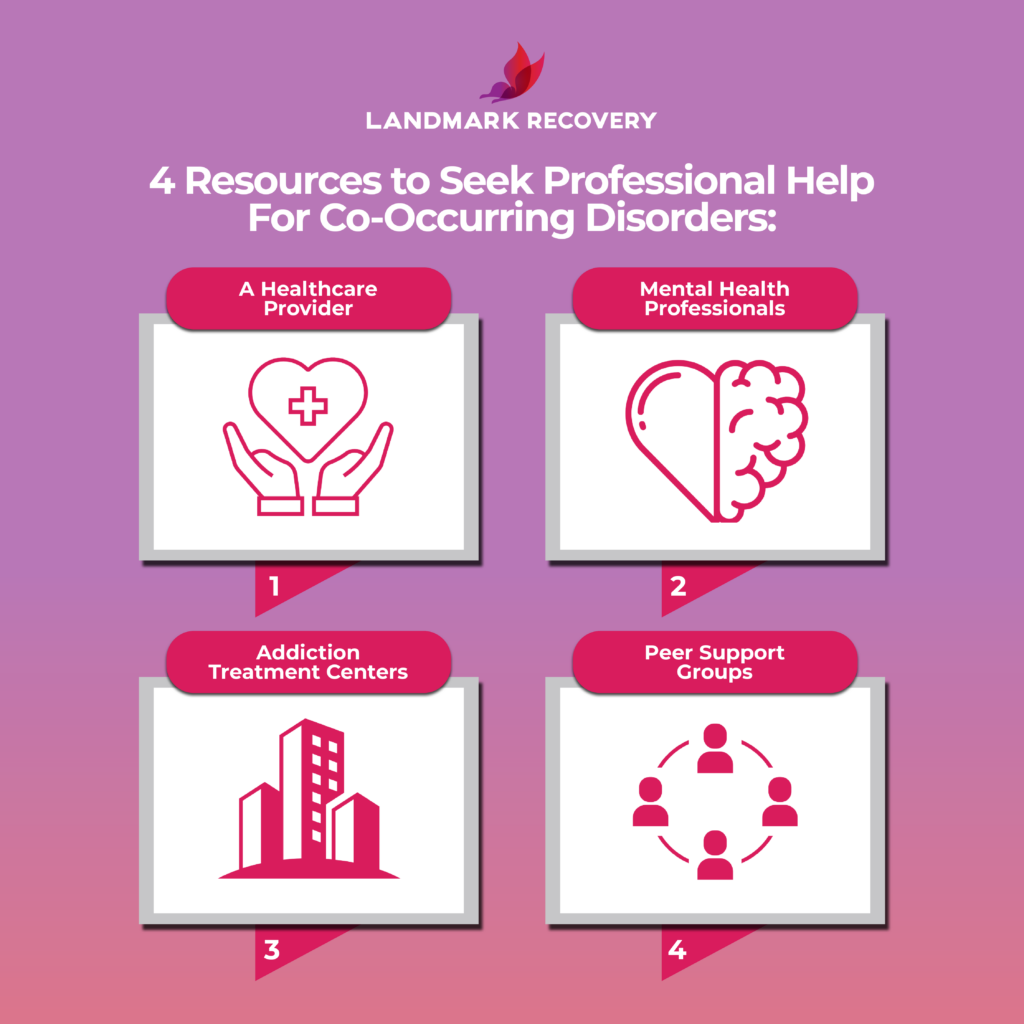Updated: May 26, 2023, at 11:33 a.m.
Sometimes, people use drugs and alcohol as a way to cope with their negative emotions or try to feel better. They might think that substances will solve their problems, but in reality, abusing them can make things worse. That’s because research shows us that using drugs or alcohol can affect our brain chemistry and emotions, which can lead to substance abuse and mental health problems like:
- Schizophrenia
- Anxiety
- Mood
- Impulse-control disorders
- Substance use disorders (SUDs)
Are you or someone you care about struggling with both substance abuse and mental health issues? You’re not alone. In fact, SAMHSA’s 2021 National Survey on Drug Abuse and Health (NSDUH) found that nearly 10 million adults in the United States are living with a co-occurring disorder.
But what does it really mean to have a co-occurring disorder? And why are these two issues so often connected? In this blog post, we’ll explore the connection between substance abuse and mental health, and provide insights on how to seek professional help and support.
Exploring Substance Abuse and Mental Health Infographic
Are you a visual learner seeking answers? Discover the powerful link between substance abuse and mental health in our engaging infographic. Download the PDF to explore the 3 key connections. Need immediate support?
Need immediate support for drug/alcohol or mental health problems? Call Landmark Recovery at 888-448-0302. Our specialized admissions team is available 24/7 to answer questions and provide guidance.
What Are Co-occurring Disorders?
When someone has a co-occurring disorder, also known as dual diagnosis, it means they’re dealing with both a substance use problem and a mental health disorder at the same time. Simply put, the two issues are happening simultaneously, and it’s not always clear which one came first.
What Are The Criteria For Co-Occurring Disorders?
The DSM-5-TR, which stands for the Fifth Edition, Text Revision of the Diagnostic and Statistical Manual of Mental Disorders, is the handbook healthcare professionals use to diagnose co-occurring disorders. It provides criteria for identifying any combination of two or more substance use disorders (SUDs) and mental disorders. These criteria include a range of symptoms that someone may experience when struggling with substance abuse, including:
- Using larger amounts of the substance over time
- Wanting to cut down or stop using but being unable to do so
- Spending a lot of time obtaining the substance or recovering from its effects
- Experiencing cravings or urges to use the substance
- Continuing to use the substance despite negative consequences, such as health problems or relationship issues
Are Substance Abuse And Mental Health Disorders Connected?
The answer is yes. Research has shown that people with mental health disorders are more likely to use drugs or alcohol to cope, or self-medicate. The relationship is complex, with each condition often influencing the other.
Here are three key ways in which substance abuse and mental health are connected:
- Substance abuse can worsen mental health conditions, such as depression, anxiety, and schizophrenia, making symptoms more severe and frequent.
- Mental health disorders can lead to substance abuse as people may turn to drugs or alcohol to cope with their symptoms. For example, someone with social anxiety may start drinking alcohol to feel more relaxed in social situations, leading to alcohol dependence or addiction.
- Someone with depression may use drugs to escape negative feelings, which could also lead to addiction.
It’s crucial to seek accurate diagnosis and professional support for co-occurring disorders to ensure the best possible outcomes. Let’s talk about what’s available to you if you struggle with either condition.
Seeking Professional Help
If you or a loved one is struggling with co-occurring disorders, it’s important to seek professional help, because it’s often difficult to manage both conditions on your own.
Here are 4 resources that may be helpful:
- A healthcare provider: Your healthcare provider can help diagnose and treat co-occurring disorders or refer you to a specialist who can.
- Mental health professionals: Mental health professionals, such as psychiatrists, psychologists, and licensed therapists, are trained to help people with co-occurring substance use problems and mental health issues.
- Addiction treatment centers: These drug and alcohol rehab centers offer a range of services, including medical detoxification, inpatient treatment, outpatient treatment, and counseling. They’re designed to help you develop the confidence to choose recovery over addiction.
- Peer support groups: Support groups like Alcoholics Anonymous (AA) and Narcotics Anonymous (NA) can provide a supportive community and help you maintain recovery if you’re someone who struggles with drugs or alcohol.
Essential Resources for Co-Occurring Disorders Infographic
Explore the wealth of resources available to tackle co-occurring disorders head-on. From healthcare providers to addiction treatment centers, mental health professionals to peer support groups, this downloadable infographic is your key to unlocking essential knowledge. Click here to download the infographic.
How to Overcome Substance Abuse and Mental Health Problems
Co-occurring disorders can have a severe impact on a person’s life, but seeking professional help from addiction specialists, like those at Landmark Recovery, can make all the difference. With the right diagnosis and treatment, it’s possible to successfully manage substance use and mental health disorders. Remember, asking for help is a brave and necessary step toward conquering different stages of addiction recovery.
If you or someone you know is struggling, don’t hesitate to call Landmark Recovery’s confidential hotline at 888-448-0302 to learn more about how you can get the help you need. You deserve to lead a fulfilling life, and seeking help is the first step toward achieving that goal.

Choose Recovery Over Addiction
We're here 24/7 to help you get the care you need to live life on your terms, without drugs or alcohol. Talk to our recovery specialists today and learn about our integrated treatment programs.





